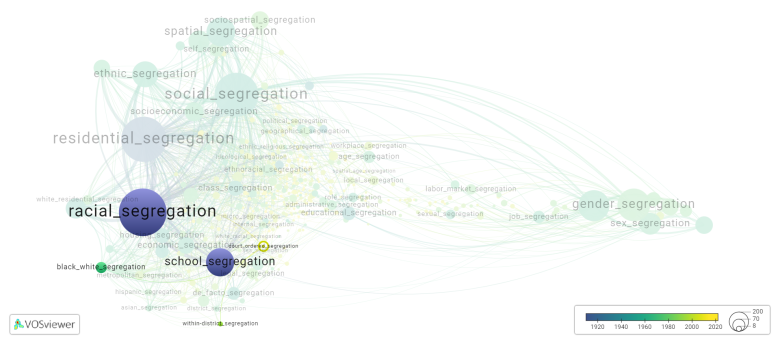Court ordered segregation: Difference between revisions
(Creating page) |
(Creating page) |
||
| Line 6: | Line 6: | ||
Court ordered segregation is a legal requirement imposed by a court that mandates the separation of individuals or groups based on certain characteristics, such as race, gender, or religion. Court-ordered segregation has been used historically to enforce discriminatory practices and deny equal rights to marginalized communities, most notably during the Jim Crow era in the United States. Today, court-ordered segregation is unconstitutional and violates civil rights protections. | Court ordered segregation is a legal requirement imposed by a court that mandates the separation of individuals or groups based on certain characteristics, such as race, gender, or religion. Court-ordered segregation has been used historically to enforce discriminatory practices and deny equal rights to marginalized communities, most notably during the Jim Crow era in the United States. Today, court-ordered segregation is unconstitutional and violates civil rights protections. | ||
==See also== | ==See also== | ||
==Related segregation forms== | |||
Court ordered segregation is frequently discussed in the literature with the following segregation forms: | |||
[[racial segregation]], [[school segregation]], [[black white segregation]], [[within-district segregation]] | |||
[[File:court_ordered_segregation.png|780x780px]] | |||
For the complete network of associated segregation forms, see: | |||
year of publication https://tinyurl.com/2235lkhw | |||
Louvain clusters https://tinyurl.com/2d8wg5n3 | |||
betweenness centrality https://tinyurl.com/223udk5r | |||
disciplines where segregation forms first appeared https://tinyurl.com/244d8unz | |||
==References== | ==References== | ||
==Notes== | ==Notes== | ||
Revision as of 14:34, 27 September 2024
Date and country of first publication[1]
2014
United States
Definition
Court ordered segregation is a legal requirement imposed by a court that mandates the separation of individuals or groups based on certain characteristics, such as race, gender, or religion. Court-ordered segregation has been used historically to enforce discriminatory practices and deny equal rights to marginalized communities, most notably during the Jim Crow era in the United States. Today, court-ordered segregation is unconstitutional and violates civil rights protections.
See also
Related segregation forms
Court ordered segregation is frequently discussed in the literature with the following segregation forms:
racial segregation, school segregation, black white segregation, within-district segregation

For the complete network of associated segregation forms, see:
year of publication https://tinyurl.com/2235lkhw
Louvain clusters https://tinyurl.com/2d8wg5n3
betweenness centrality https://tinyurl.com/223udk5r
disciplines where segregation forms first appeared https://tinyurl.com/244d8unz
References
Notes
- ↑ Date and country of first publication as informed by the Scopus database (December 2023).
At its current state, this definition has been generated by a Large Language Model (LLM) so far without review by an independent researcher or a member of the curating team of segregation experts that keep the Segregation Wiki online. While we strive for accuracy, we cannot guarantee its reliability, completeness and timeliness. Please use this content with caution and verify information as needed. Also, feel free to improve on the definition as you see fit, including the use of references and other informational resources. We value your input in enhancing the quality and accuracy of the definitions of segregation forms collectively offered in the Segregation Wiki ©.
Court ordered segregation appears in the following literature
Maples R.L. (2014). The Legacy of Desegregation: The Struggle for Equality in Higher Education. The Legacy of Desegregation: The Struggle for Equality in Higher Education, 1-145. Palgrave Macmillan.https://doi.org/10.1057/9781137437990
Davis T., Bhatt R., Schwarz K. (2015). School segregation in the era of accountability. Social Currents, 2(3), 239-259. SAGE Publications Inc..https://doi.org/10.1177/2329496515589852
